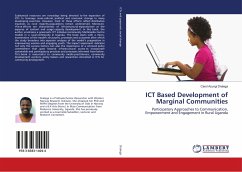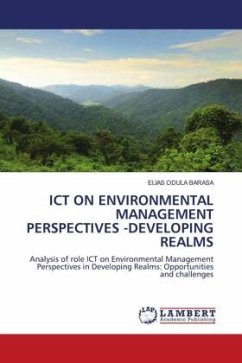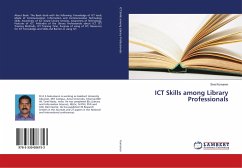
ICT Based Development of Marginal Communities
Participatory Approaches to Communication, Empowerment and Engagement in Rural Uganda
Versandkostenfrei!
Versandfertig in 6-10 Tagen
52,99 €
inkl. MwSt.

PAYBACK Punkte
26 °P sammeln!
Substancial resources are nowadays being devoted to the expansion of ICTs to leverage socio-cultural, political and economic change in many developing countries. However, most of these efforts reflect distributive injustices as rural majority populations remain underserved. Moreover, these efforts are characteristic of infrastructural expansionism at the expense of content and usage capacity development. In this book, the author scrutinizes a grassroots ICT initiative (community Multimedia Centre model) in a rural community in Uganda. The book starts with a micro- examination of the model's st...
Substancial resources are nowadays being devoted to the expansion of ICTs to leverage socio-cultural, political and economic change in many developing countries. However, most of these efforts reflect distributive injustices as rural majority populations remain underserved. Moreover, these efforts are characteristic of infrastructural expansionism at the expense of content and usage capacity development. In this book, the author scrutinizes a grassroots ICT initiative (community Multimedia Centre model) in a rural community in Uganda. The book starts with a micro- examination of the model's structures, processes and outcomes after which the study broadens into separate analyses of the model's pragmatism in empowering women and engaging youth. The impact assessment indicates not only the success factors, but also the importance of a schrewd policy commitment that goes beyond infrastructural access to incorporate sustainable and participatory practices and processes informed from below. This book is resourceful to community media practitioners, community development workers, policy makers and researchers interested in ICTs for community development.












